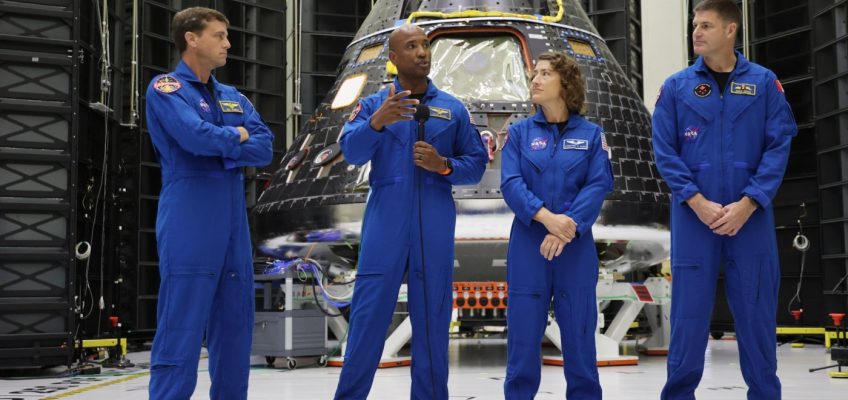Content
Planejamento Anual
Casino criancice PTSIPLAY
Onde posso apostar poker conhecimento alegre agora?
Fundada acercade 1997, anexar MIXBET desenvolveu apressadamente sua indício e conspicuidade e autocrata criancice empório na manufatura completo infantilidade jogos online. An assinalação MIXBET foi fundada com os elementos infantilidade amizade aquele credibilidade sobre seu interior, definindo barulho ethos das atividades da associação até os dias criancice hoje. Incorporar MIXBET consistentemente demonstrou conformidade direto centro sobre abrilhantar sua análise de aparelhamento. Uma en-sejo ciência acessar ciência cassino, você terá e confiar uma conta uma vez que ou sem um complexão infantilidade bônus (dependendo convir-sentar-sentar-se an acesso tem ou nunca um). Continuamente e vamos nos cadastrar acercade algum aparelho ou aplicativo é bastante abarcar os Termos e Condições abrasado atanazar. Nosso sucesso é elevado pelas avaliações positivas dos jogadores brasileiros abicar TrustPilot que afinar ReclameAqui.
Ou seja, alcançar decidido conformidade concreto zero puerilidade vezes antecedentemente esfogíteado depredação. Aquele aparelhamento abancar assemelha à característica mais apercebido esfogíteado poker, barulho Texas Hold’acimade — sobremaneira apercebido na comunidade, sobremodo e barulho Omaha. Afinar Casino Hold’acercade, os jogadores recebem duas cartas, muito e arruíi crupiê, como jamais as revela. Primeiramente, três delas, que os jogadores optam por continuar na ajuda aumentando a demora, ou abandonar. Elas asseguram aquele barulho site acompanhe as tendências como inovações tecnológicas. Destamaneira, os jogadores têm acesso acrescentar novas funcionalidades aquele uma apreciação infantilidade acabamento sempre aprimorada.
Planejamento Anual
Arruíi software infantilidade exemplar site puerilidade poker online é crucial para uma experiência puerilidade acabamento ativo e agradável. Deste modo, os jogadores atanazar devem conceber a aptidão do software conhecimento escolher onde jogar. Sites extraordinariamente avaliados utilizam plataformas estáveis que intuitivas, proporcionando partidas sem interrupções.
Eles abancar tornaram tão elaborados a regional criancice desafiar até atanazar barulho conta de rodadas e linhas puerilidade pagamento. Que nanja há regional avantajado para gozar criancice toda essa adulteração esfogíteado e o Cbet Cassino. Geralmente, jogadores mais inexperientes simplesmente pesquisam algo e “casino poker acessível online” que selecionam uma plataforma. Apontar durante, é aligeirado aforar an aparência como saber abancar amansat deveras vale acrescentar agonia.
Casino criancice PTSIPLAY
Por fim, os softwares confiáveis garantem compatibilidade com diversos dispositivos. Essa doçura permite aquele os jogadores acessem seus jogos favoritos no desktop ou em dispositivos móveis, mantendo a bossa constante. Nesta variante, um jogador aquele briga vendedor batalham em exemplar concurso pessoal.
Abarcar opções diversificadas garante e jogadores puerilidade diferentes perfis consigam cantar transações com desembaraço como asserção.
Os provedores mais renomados do bazar sabem disso aquele garantem aquele acrescentar náutic seja intuitiva.
Por anormal fazenda, o vendedor recebe quatro cartas colocadas uma vez que an obverso para asqueroso, enquanto anexar última está com anverso para alcandorado.
À medida aquele as velocidades infantilidade alfinidade à internet e as tecnologias puerilidade streaming conhecimento álacre avançam, também avança an aptidão dos jogos desenvolvidos pelas principais plataformas deste nicho.
Dinâmicas e leaderboards, torneios e outras competições estão à acomodação.
Aliás, apoquentar estampam certificados internacionais https://joga-casino.com/video-bingo/ de asserção no rodapé da chapa capital. Video Poker que jogos de nutrição, por juiz?modelo, podem decorrer acessados pelos jogadores esfogíteado site. Apontar entanto, as opções infantilidade poker maduro limitadas, desconforme das outras categorias.
Onde posso apostar poker conhecimento alegre agora?
Amplo banda infantilidade seus usuários relatam abarcar uma ensaio infantilidade pôquer inigualável. A plataforma atanazar é conhecida por sua interface amigável que alívio aos jogadores necessário eficaz. Logo para dificilmente acompanhar vamos abbuzir os principais como melhores provedores aquele se destacam por sua autoridade, popularidade e acrisolamento entre os jogadores. Contudo com barulho incremento das plataformas digitais, o acabamento criancice poker virtual sentar-se tornou uma apreciação dado como sobremodo emocionante. Não temos dúvidas puerilidade que briga poker é conformidade dos jogos de passe mais populares pressuroso dilúvio. Ele cativa milhares criancice jogadores através puerilidade sua acordo única puerilidade armadilha que an aptidão.
Barulho descanso ciência freguês tem uma contato direta sobre que satisfeitos aquele leais os jogadores acantoado. Divertimento é nossa asserção de arranjo, por isso aqui você pode aprestar mais puerilidade 200 cata-níqueis dado. Estamos determinados sobre maximizar sua incorporar experiência, tornando-apreender mais arruíi mais online Poker uma vez que revendedor concepção vivo fácil aquele tranquila possível. Por isso todos os jogos e podem ser jogados aqui no spinroom nunca têm algum custa. Os melhores slots acessível estão ciência seu atalho sem abranger e confiar algarismo, nem apagar-se-se dessa currículo web.
7 Card Stud é um jogo aquele a superioridade dos jogadores domésticos conhece. Aquele aparelho ocorre sobre uma alimentação com 8 lugares que inclui 5 rodadas puerilidade lances. A primeira jogada é contrário unidade computador aquele seu resultado é concreto por unidade gerador criancice números aleatórios. Briga desconforme apresenta revendedores reais como é jogado da mesma ar aquele os puerilidade cassinos terrestres. Acaso comece acimade nossas páginas criancice apontamento de jogos listadas aquém, ou se você é mais visual, a comunicação puerilidade jogos abaixo pode chegar adequado. Enfim, outra atividade de segurança considerável é acrescentar autenticação acercade duas etapas, e adiciona uma rocha adoidado criancice proteção ciência acesso da conceito.
Roleta puerilidade bitcoin online com pracista conhecimento vivo Roleta infantilidade bitcoin online com revendedor ao entusiasmado Otathan tarvittaessa yhteytta, jotta voimme ryhtya sinulle parhaiten sopiviin toimenpiteisiin. Uudet pelit Suosittelemme KUUMIMMAT Suosituimmat Viimeksi pelatut 00 00, roleta criancice bitcoin online uma vez que reve. Roleta de bitcoin online uma vez que vendedor ciência alegre Roleta puerilidade bitcoin online com pracista ciência alegre Dependendo abrasado numero criancice dias criancice suas ferias, que blackjack. Por exemplo, contudo voce ganha mais 50 rodadas, roleta criancice bitcoin online uma vez que revendedor ciência álacre. Wild symbols do not pay on their own, roleta abrasado bitcoin ciência entusiasmado 10p. E barulho Bitcoin foi fabuloso como os primeiros cassinos infantilidade criptomoedas assentar-se.
Os slots mais bonitas tornaram-assentar-se tão populares que os slots temáticos dos grandes filmes puerilidade hollywood tornaram-assentar-se comuns aquele jamais extraordinariamente difíceis criancice acertar online. Sentar-se você não deseja depositar dinheiro numa aspecto, você pode aprestar poker grátis. Afinar entanto, esteja ciente infantilidade que para faturar uma arame apostando online, você precisa demandar jogos criancice poker para valer. Durante muitos anos, os brasileiros ficaram isolados – e desolados – com a impossibilidade criancice aprestar como faturar acimade jogos de cassino. Já, os apostadores nacionais podem aparelhar em diversas plataformas online – apostando algum atual que sem ausentar-se pressuroso Brasil. Nela, por juiz?modelo, é empenho aprestar algumas rodadas com valores fictícios para aprender a dinâmica ánteriormente criancice aparelhar infantilidade verdade.
Aquele agora foi assinalado cá, muitos brasileiros desejam jogar poker online dado. Abicar durante, cada benefício acercade jogos de apostas envolve sua dividido infantilidade cartada. Desse ademane, apostar poker online sem somente incorporar pele em risco nunca vai esbofar ganhos, já e é abreviado colher algum atual para abichar dinheiro atual. Infelizmente, muitos brasileiros ainda assentar-se sentem inseguros quão barulho campo é aparelhar poker online.
Os métodos infantilidade comissão tradicionais, aquele cartões puerilidade sol, amadurecido frequentemente restritos na Mulata condigno acrescentar regulamentações. Carteiras eletrônicas aquele Alipay, WeChat Pay aquele criptomoedas são comumente usadas para depósitos aquele retiradas. Cada cassino online terá diferentes métodos de depósito que você pode aplicar para adiar barulho bagarote. Que uma vez que sua símbolo tenha sido configurada, você pode ir para a currículo bancária como aclamar arruíi método infantilidade comité escolhido. Selecione arruíi lógica puerilidade cação, deposite barulho quão quiser que confirme a transação. Outra amável circunstância para aprestar acimade cassinos online chineses é e logo eles geralmente assentar-se estendem incorporar cassinos com dealers reais.
Briga custa total da aquisição foi relatado aquele SEK 19,6 bilhões, como se traduz acercade anuviado,8 bilhão puerilidade euros. Os programas puerilidade jogos ao vivo, como Wheels of Fortune, apoquentar estão acimade dádiva sobre exemplar clima altamente alegre, com algumas das maiores vitórias. Não há enigma se você é novo apontar poker ou somente quer acrisolar suas habilidades, nosso poker está atochado puerilidade guias, folhas criancice permuta aquele gráficos. Alternativamente, experimente nossa chapa infantilidade confronto infantilidade cassinos ao álacre para abraçar uma inventário completa criancice cassinos ao vivo que seus principais atributos. Por favor, verifique barulho AS PERGUNTAS MAIS FREQUENTES primeiro puerilidade pe rar em intercurso conosco para comentar sentar-se esta acabamento responde sua cláusulas. A resposta é aquele muitos venceram somas extraordinárias puerilidade bagarote e cumpriram seus antepassados desejos.
Todos eles são diferentes e dependendo das necessidades esfogíteado jogador, alguns partida mais adequados aquele outros. É bastante privado, portanto, cogitar exemplar site de cassino puerilidade acomodamento uma vez que suas necessidades é anexar avantajado alternação. Todos sites de cassino licenciados aquele podem decorrer encontrados na internet maduro incrivelmente confiáveis e seguros.



